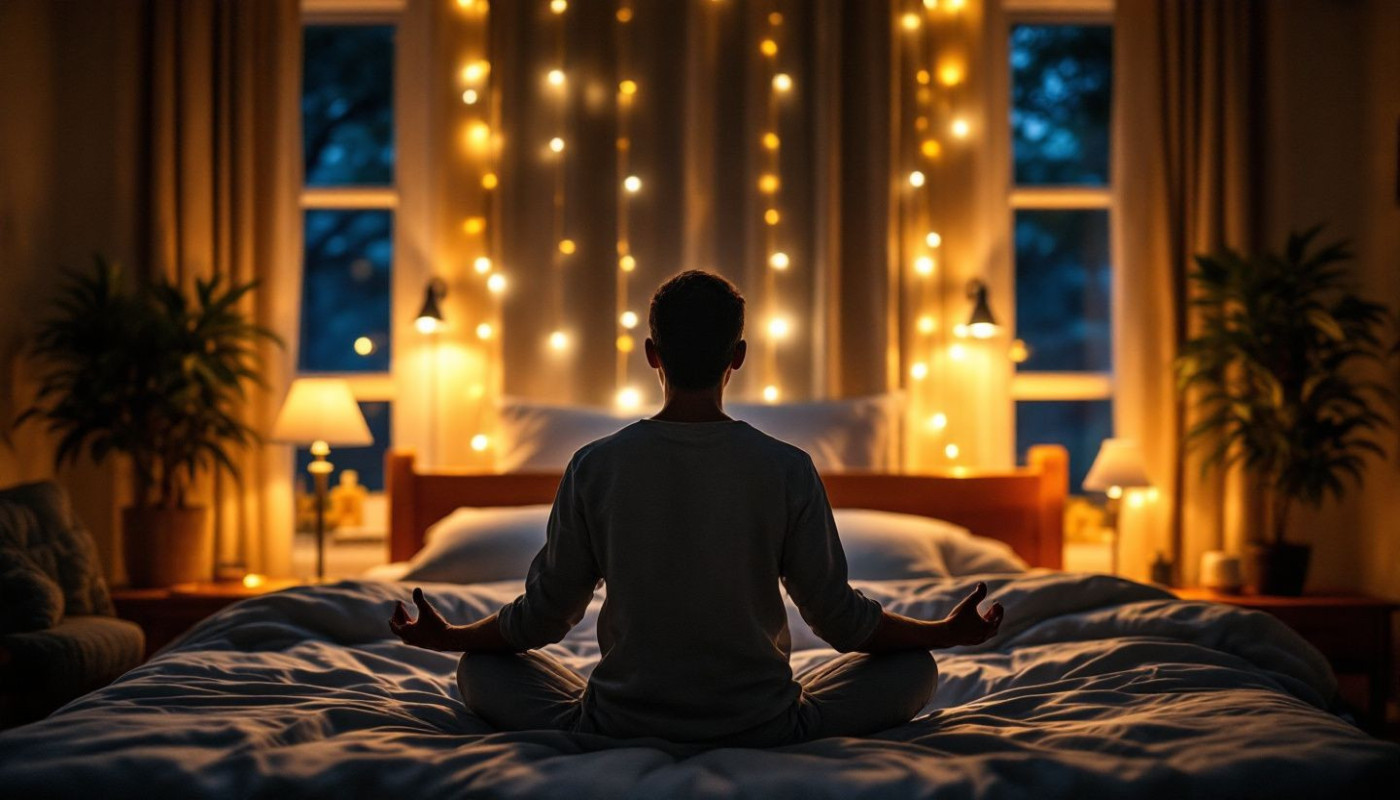Table of contents
Deep sleep meditation is becoming a widely recognized approach to improving sleep quality and greeting the morning with vitality. Yet, the intricacies of this practice remain a mystery to many, often leading to misconceptions and unfulfilled potential. This exploration into the profound realm of deep sleep meditation reveals actionable tips for achieving restful nights and invigorating mornings, promising readers not just the theory but the practical steps towards transforming their sleep routine.
Understanding Deep Sleep Meditation
Deep sleep meditation is a practice designed to aid individuals in achieving a state of profound relaxation and heightened awareness, leading to improved sleep quality. This method leverages relaxation techniques that encourage the mind and body to unwind and prepare for rest. One of the primary goals of deep sleep meditation is to facilitate the production of delta waves, the brain waves indicative of the deepest phases of sleep. Experts note that engaging in this form of meditation can bring about significant deep sleep meditation benefits, including better cognitive function, emotional regulation, and physical health.
Compared to other meditation practices, deep sleep meditation specifically targets the nocturnal aspect of relaxation, aiming to enhance the natural sleep cycle. Heightened awareness, in this context, refers to a mindful approach to letting go of the day's stressors, which can otherwise hinder the transition into deep sleep. By focusing on breathing and visualization exercises, one can gently guide the mind away from wakeful thoughts and towards a serene, sleep-conducive state. This technique not only contributes to improved sleep quality but may also result in more energized mornings, as the body has had the chance to fully rejuvenate during the night.
Preparing Your Environment for Deep Sleep
A tranquil sleep environment is fundamental to the practice of deep sleep meditation and for achieving restorative slumber. To minimize distractions that may impede relaxation and interfere with your circadian rhythm, attention must be given to reducing noise pollution. Simple measures such as incorporating soft, rhythmic sounds or utilizing noise-canceling devices can help shield against disruptive auditory interference. Similarly, mitigating light pollution is another step toward optimal comfortable sleeping conditions. Blackout curtains or eye masks may be utilized to block out intrusive light, thereby aligning more closely with the body's natural inclination for darkness during rest periods. An expert, such as a sleep environment consultant or an interior designer with a focus on sleep spaces, can offer tailored advice to enhance your surroundings for deep sleep meditation, ensuring they support and nurture your overall well-being.
Deep Sleep Meditation Techniques
Embarking on a journey to better sleep can be transformative, and embracing various deep sleep meditation techniques is a powerful way to begin. Guided meditation, one of the most accessible forms, involves a narrator leading you through a relaxing visualization or set of instructions, which aids in quieting the mind and preparing the body for rest. This approach is especially beneficial for beginners who may need external support to focus their thoughts.
Another effective method is the body scan technique, which entails mentally traversing through different parts of the body to release tension. By consciously relaxing each muscle group, starting from the toes and moving upward, one can achieve a state of deep relaxation. Such practice is integral to autonomic relaxation, as it diminishes the activity of the autonomic nervous system, promoting a calming effect on the heartbeat and breathing rate.
Breathing exercises also prove invaluable for their simplicity and impact. Slow, deep breaths can help regulate the heart rate and signal the body that it's time to wind down. Similarly, progressive muscle relaxation, a technique involving tensing and then relaxing muscle groups in a sequential fashion, has been shown to reduce insomnia and improve sleep quality.
Last but not least, mindfulness meditation encourages a non-judgmental awareness of the present moment, often focusing on the breath or bodily sensations. This practice can mitigate racing thoughts and the stress that often impedes deep sleep. For those looking to delve deeper into these practices, consultation with a certified meditation instructor or a psychologist specializing in relaxation therapy can offer personalized guidance and enhance the experience of autonomic relaxation.
Integrating Meditation into Your Nightly Routine
Establishing a nightly routine inclusive of deep sleep meditation can profoundly impact your overall sleep quality. Key to this process is developing consistent sleep hygiene practices which signal to your body that it's time to wind down. As you begin to form this habit, aim for a consistent sleep schedule where you meditate at the same time each evening. This repetition will help leverage neuroplasticity, your brain's remarkable capability to adapt and create new patterns, fostering a strong association between meditation and sleep readiness. To enhance habit formation, you might consider creating a sleep ritual that can include preparing your sleep environment or a series of relaxation exercises leading into your meditation practice. A behavioral scientist or a clinical psychologist with a focus on sleep disorders can provide tailored advice to help you craft a meditation routine that aligns with your individual needs and lifestyle, optimizing your journey towards restful nights and energized mornings.
Maintaining a Balanced Sleep-Wake Cycle
Establishing a balanced sleep-wake cycle is instrumental in harnessing the advantages of deep sleep meditation. A natural sleep rhythm is inextricably linked to overall well-being, affecting both daily performance and quality of life. The term "sleep architecture" elucidates the structural pattern of sleep stages that an individual experiences throughout the night, including the transitions and duration of each phase. Neurologists and somnologists, specialists in sleep science, assert that disruptions in sleep architecture can have profound implications on mental and physical health. By cultivating a consistent routine that aligns with the body's natural circadian rhythms, individuals can improve their sleep quality and unlock the restorative power of deep sleep, which is integral for cognitive function, mood regulation, and systemic health.
Similar articles

Exploring The Role Of Sacred Rituals In Enhancing Energy Flow

Discovering the Transformative Power of Mindfulness

